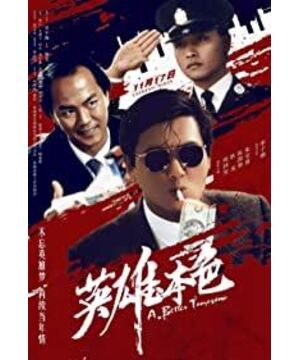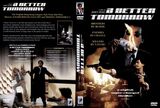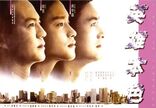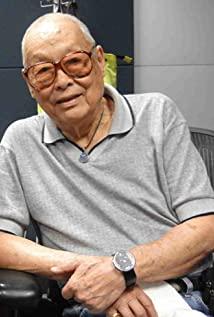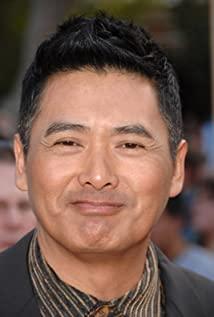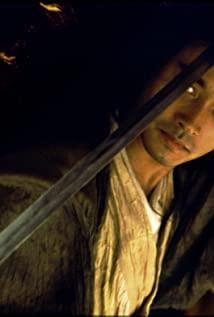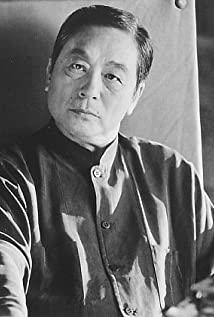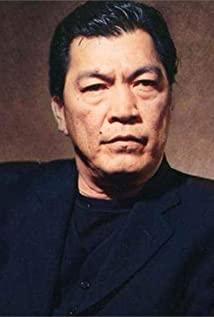This article was first published on the Zhihu account:
Bibimbap
Welcome to follow?
Since the 1960s, some Asian countries and regions have developed export-oriented economies, relying on labor-intensive processing industries, and achieved economic growth in a short period of time, becoming the richest and most developed regions in Asia. These four countries and regions are most notably characterized by emerging industrial countries and developing individuals. The Four Asian Tigers are: Hong Kong, Taiwan, Singapore, and South Korea.
These four regions/countries have close economic exchanges, and because they are located in the Asian region, cultures influence and blend with each other, especially the popularity of Hong Kong culture in South Korea, which to a certain extent affects South Korea's vigorous development of cultural industries after the millennium. action. When the Korean Wave was blowing in China, it was unexpectedly discovered that many TV dramas, movies and stars could not avoid the "Hong Kong film complex".
- The End Hero's Jedi Counterattack
"The True Color of Heroes" has obvious trans-epochal significance in Hong Kong film history. It opened up a new genre of films, allowing John Woo, Dillon, and Chow Yun-fat to break the shackles and let Leslie Cheung establish good connections in the film industry.
Before that, John Woo was a small director who failed to develop in Taiwan and was frustrated. Chow Yun-fat's small-budget films were only a few hundred thousand to several million at the box office. Lord Dillon, who was kicked away by his old club Shaw Brothers at the age of 40, only said in his resignation letter: "Thank you for the achievements you have made for the company over the years."
Confused and lost, unwilling to be resentful, these three heroes at the end of the road came together.
On the contrary, Leslie Cheung, who helped "The True Color of Heroes" to attract investment, was a "popular fried chicken" in the music world at that time. He held 10 concerts in 1985, breaking the historical record, and his popularity was booming. The ratio is not pleasing, and the number of scenes has also been reduced in the mid-term. It still can't stop Leslie Cheung's enthusiasm for acting, and even privately asked John Woo whether he needed funds. Such a pattern and character have allowed Leslie Cheung to establish a good network in the film industry.
Of course, there is also the producer of "Old Monster Xu" Tsui Hark. It was after a few drinks in the bar that Tsui Hark suggested John Woo to make a police and bandit version of "The True Color of Heroes" (the film of the same name starring Xie Xian was released in 1967). ), unexpectedly, the unintentional act brought together several frustrated filmmakers and started the Jedi counterattack of the heroes of the end.
- South Korea under the Hong Kong wind
In the 1980s and 1990s, Hong Kong culture was prosperous. At that time, Korea and Hong Kong traded frequently, bringing Hong Kong culture to Korea. The Korean drama "Reply 1988" faithfully reproduces the popular culture and warm daily life of South Korea in the 1980s. Whether it is the fierce democratization movement, the Seoul Olympics, denim jackets and NIKE sneakers, they all bear the trendy imprint of the old times, and the first episode of the TV series shows the scene of Deshan and others watching a movie together in front of the TV.
The TV is playing "The Color of Heroes 2".
Chow Yun-fat, who became popular because of "The True Color of Heroes", made an endorsement advertisement for milk and soda in South Korea, which shows the popularity of this movie in South Korea.
Not only that, the great god Liu Zaishi is Leslie Cheung's big fan brother. He once sang the theme song "Towards the Future Days" in "The True Color of Heroes 2" in relatively standard Cantonese on the show, making people feel the power of idols in a trance. .
It turns out that idols also have their own idols.
In the program of "Running Man-Hong Kong 24 Hours", several Korean guests revisited their hometowns and came to Victoria Harbour in Tsim Sha Tsui. Liu Zai sang "Love of the Year" and staged a cross-time chorus with the Hong Kong fans present.
In the "Fried Chicken Commando" released in 2019, there is a special tribute to "The True Color of Heroes" and his brother! When the movie was about to end, the scene of victory was announced by sitting on a large chair with "The True Color of Heroes II", and the background music played "The Love of the Year", which shows that my brother Leslie Cheung has a great influence on Koreans!
When "A Happy Family 1992" was released in South Korea, because Song Zijie's image was so popular, the South Korean producer specially asked Leslie Cheung to play a gunfight film in it. Although that scene was out of tune with the previous tone of the Lunar New Year film, it was enough to see that South Korea Fans love "The Color of Heroes".
So, what is the reason why Koreans have a soft spot for "The True Color of Heroes"?
- The 1980s when supply and demand met each other
With the title of Oriental Hollywood, Hong Kong's influence in the 1980s and 1990s is obvious to all. The rapid economic development has led to further cultural prosperity. When the mainland was still an uncultivated wasteland, Hong Kong culture has spread its influence to South Korea, indirectly driving the development of the Korean cultural industry.
Although South Korea's economy has gradually taken off, the living standards of ordinary people are still quite different from that of Hong Kong, which is also the small four dragons in Asia. Therefore, compared to the political chaos in South Korea, Hong Kong people prefer to travel to more modern Japan and foreign countries. tour. We can see in "Reply 1988" that wealthy Korean families eat Western food and drink Coke, and families who have just passed the poverty line still maintain the eating habit of miso soup and rice. The popularization of the media allows mass culture to be introduced into different families at the same time, bringing joy to the monotonous life.
Compared with the multi-media era in which every person has a mobile phone, the TV media in the 1980s tended to be collectivistic, which was in line with the Korean tradition of attaching importance to the order of family and elders (just like Desun often couldn’t win over his sister Paula when he grabbed TV), Therefore, there is often a situation where a certain singer or a certain movie is well known. Along with TV, video recorders are also popular, and Hong Kong films have taken advantage of this medium to become popular in Korea.
At the same time, Korean domestic films are in a downturn due to institutional constraints. The interference of power and funds has led to difficulties in producing Korean local films. The Korean audience's demand for films has turned to foreign films. The more popular ones are American films and Hong Kong films. (Because of Korean nationality, Japanese movies and culture are not popular).
This is related to the degree of economic development in South Korea and the background of the times. Thus, on the one hand, the brilliant mass production of Hong Kong films and Hong Kong dramas, and on the other hand, South Korea's thirst for trendy culture and recreational entertainment, and the mutual satisfaction of supply and demand, achieved the social phenomenon that Hong Kong films swept South Korea in the 1980s.
- The cultural environment behind Korean mass aesthetics
Although everyone has a love for beauty, South Korea's thirst for beauty has reached the point of madness, especially in the past two years, Hallyu stars and cosmetic surgery have made South Korea sit back and watch the throne of beauty, it is not difficult to understand why Chow Yun-fat and Leslie Cheung , Andy Lau, Wang Zuxian and other stars can become the hottest foreign stars in Korea at that time.
In 1989, Leslie Cheung came to South Korea to promote "A Chinese Ghost Story" and danced "Heartless Sleep" on the KBS stage. The Korean media called him "the noble son of the East". It can be seen that the Koreans' definition of a beautiful man: personable and extravagant, With picturesque features and connotations, under the handsome appearance is a brave and bloody heart. If you only have masculinity without a handsome appearance, you should not be able to become a "beauty-loving" Korean.
In the ranking list of the most handsome male stars in South Korea recently announced by the large-scale Korean voting website "KingChoice", the top three are Kim Hyun Joong, Ji Changmin and Lee Min Ho. Their common features are handsome and handsome faces and toned bodies. Coincidentally, all three have played the role of "special agent", breaking through the siege in a dangerous environment, with a masculine and passionate heart under the seemingly handsome and unreliable appearance. Such star orientation can reflect the Korean aesthetics.
Going back to Leslie Cheung's explosion in South Korea, it's not difficult to understand. In "The True Color of Heroes 2", Song Zijie, played by Leslie Cheung, named his newly born daughter "Haoran" on the verge of death, which happened to hit the Korean people's desire for masculinity and iron-blooded tenderness. Liu Zaishi recalled deeply in the variety show. The clip and the scene played in the "Reply 1988" video just happened to prove why Leslie Cheung was all the rage in South Korea 30 years ago.
Compared with the original cultural temperament and aesthetic orientation of mainland China, the influence of Hong Kong films in South Korea seems to be even better. To be more precise, South Korea has truly inherited the "mantle" of Hong Kong films, and developed a film that is exclusive to South Korea and reflects the world. Universal view of the commercial film.
- Korean films that inherit the mantle of Hong Kong films
Hong Kong and South Korea, which are the same as the four Asian tigers, have a large gap in economic size in the last century, but after the millennium, South Korea has vigorously developed the cultural industry and supported the development of film and star culture with the power of the whole country. SM, JYP, YG and other cultural companies all caught up with the wave of cultural development after the millennium, laying the foundation for the popularity of Hallyu culture in the world.
Hong Kong films, on the other hand, quickly "died" under the enormous pressure of censorship, subject matter restrictions and practitioners going north. The film industry often regards 2003's "Infernal Affairs" as a "return to the light" of Hong Kong films. In the following 20 years, Hong Kong films could no longer be restore its former glory.
The "Hong Kong Film Awards", which used to be the vane of the film, has been changed to online live broadcast due to the continuous spread of the epidemic in 2020. The once crowded alley is now only the veteran Hong Kong director Er Dongsheng sitting alone, feeling lonely.
The film "Parasite" directed by South Korean director Bong Joon-ho won the best picture at the 92nd Academy Awards in 2020.
The living soil of Korean films is similar to that of Hong Kong films in the past. The "free and sinister" capitalist system has spawned ever-changing social themes. The film grading system and relaxed censorship environment have given filmmakers a high degree of creative freedom. Based on the Hollywood script creation model, the script-oriented film creation provides a content guarantee for the sound development of film content.
The social film 'The Melting Pot' that changed Korean law
High-scoring gangster film "New World"
Erotic crime film "Empty Room"
Fantasy ghost movie "Walking with the Gods"
Rich themes, a free creative environment and a mature industrial chain have laid a solid foundation for the quality of Korean films. When watching Korean films, I see the shadow of Hong Kong films from time to time. Perhaps this is exactly what teachers and students do. Have a heart. "The True Color of Heroes" has attracted much attention in Korea, which has brought about the rapid development of Korean films in the later period.
Brother Xiao Ma contributed the classic line in "The True Color of Heroes": I waited for three years, just to wait for an opportunity, I want to fight, not to prove that I am great; I want to tell people what I lost Gotta get it back!
In an era when Hong Kong films are dead, it is a comfort to see Korean films coming from behind.
"The love in the past is now a new addition."
View more about A Better Tomorrow reviews


